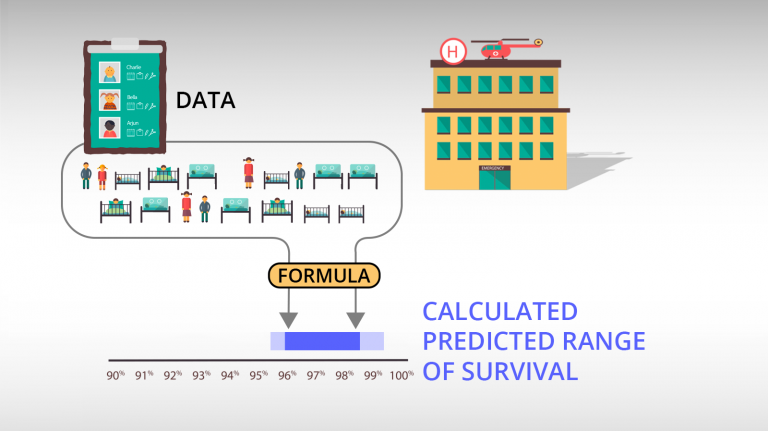Communicating and helping to improve children’s heart surgery outcomes in the UK, Ireland, and USA
Research from UCL’s Clinical Operational Research Unit (CORU) has improved how the outcomes of children’s heart surgery are evaluated.

12 April 2022
Congenital Heart Disease (CHD) affects 1% of babies worldwide and is the most common birth defect in the UK, with 4,000 heart operations performed each year. This surgery saves and transforms lives, but comes with risks of serious complications and death.
Hospital survival rates are closely scrutinised, but some surgical interventions are more complex than others and children with CHD have different risk profiles, which could mean hospitals that take on complex cases might appear to perform less well.
An Operational Research team led by Professor Christina Pagel at UCL’s CORU applied a unique combination of statistical model building, data visualisation, software development and innovative methods for collecting and communicating data to improve quality standards of care for children with CHD.
They developed the “Partial Risk Adjustment in Surgery” (PRAiS) model for 30-day survival following paediatric cardiac surgery which, for the first time, included the nature of the child’s heart defect and if the child had additional health problems.
The team went on to develop software to implement PRAiS that enabled hospitals and the national CHD audit body (NCHDA) to generate graphical summaries of risk-adjusted survival over time. This has helped individual hospitals to check their performance against national expectations. Within a year of its release in 2013, all 13 heart hospitals in the UK and Ireland had purchased software licenses through UCL Business.
To further enhance the data available to assess performance, the team worked with clinicians and patients’ families to develop tools to measure how often particular surgical complications occurred and to identify risk factors. In 2015, NCHDA adopted seven of the nine complications CORU recommended for measurement.
Professor Pagel took the same collaborative approach when co-designing a website to help families and the public access and interpret the published data. The website explains how the NHS collects and analyses survival data in CHD, using displays and language chosen by and tested with key audiences.
Launched in 2016, the Understanding Children’s Heart Surgery Outcomes website is accessed by many of the parents of the 4,000 children per year who have heart surgery in the UK. It also provided inspiration for societies in the USA to build an online portal to help parents access and interpret survival outcomes after heart surgery there.
CORU’s research has transformed how local clinicians and national regulators monitor CHD surgical outcomes, and how these outcomes are reported in national audit. It has led to new services (such as designated cardiac liaison nurses) and has increased the quality and accessibility of data, supporting improvements in survival rates.
Professor Pagel said: “CORU was awarded the 2019 Lyn Thomas Impact Medal for Operational Research, which best demonstrates both novelty and real-world impact. The OR [Operational Research] Society recognised the significant impact our research has had on the lives of children with congenital heart disease.”
Research synopsis
Communicating and helping to improve children’s heart surgery outcomes in the UK, Ireland, and the USA
Research from UCL’s Clinical Operational Research Unit (CORU) has improved how the outcomes of children’s heart surgery are evaluated. It has influenced national standards for improving quality of care, improved quality assurance at dedicated heart hospitals and enhanced national reporting in the UK, Ireland, and the USA, making data readily available to all interested parties.
Project team: Professor Christina Pagel, Professor Sonya Crowe, Professor Martin Utley, Dr Libby Rogers, Dr Luca Grieco
Links
- Professor Christina Page's academic profile
- UCL Department of Mathematics
- UCL Faculty of Maths & Physical Sciences
- UCL Faculty of Maths & Physical Sciences REF 2021
Photo credit
- Quodos : A snapshot from an animation explaining how the PRAiS risk model is used to report 30-day survival for hospitals doing heart surgery in children
 Close
Close

